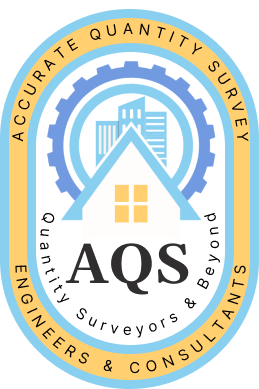
“Rather than creating divisions or hierarchies within our profession, we should celebrate the diversity and depth of skills present across the Quantity Surveying community”.
I wanted to take a moment to address a topic that has been on my mind lately—the term “PQS” or Professional Quantity Surveyor.
The Quantity Surveyor is a professional who works in the field of construction management by providing effective cost control for the project. A Quantity Surveyor is neither a Land Surveyor nor a Building Surveyor. Some clients who are not familiar with the Quantity Surveyor term often cannot differentiate between a Quantity Surveyor and Land Surveyor. Quantity Surveyor should have adequate knowledge about Engineering, Construction Design, and Architecture. Quantity Surveyors help their clients to keep the project within budget and time. Sometimes based on the industries they work, they can be called cost consultants, project control professional or can work as Project Manager for the Client.
The Professional Quantity Surveyor is a vital member and brings value to the design and construction team. A PQS has the right experience and expertise in the field of construction costs. A PQS can be retained by the Client in design and construction. The PQS will help the Client from the inception to the total completion of the project. Engaging a PQS very early in the project can provide a substantial cost saving in the project and save the Client a considerable cost due to time and cost overrun in the project.
The PQS selected for the project will work with the Client and the design team to establish the program budget. During the design phases, the PQS will prepare elemental cost plans based on at what stage the design is. The cost estimate can be used to monitor changes and variations in the anticipated cost; based on the anticipated cost; a decision can be taken whether to allow the addition or deletion of the design so that the original budget can be maintained. Before the tender, the elemental cost estimate should be reviewed. The pretender estimate is used to evaluate bids received. The QS then helps the Client in the bid evaluation process to select the right proponent.
Sometimes Client engages a Construction Quantity Surveyor at the construction phase. The QS will help the Client in cost control of the project based on the approved budget; manage all changes in the projects, tracks delay in the project, and its implication on the project. However, when a QS is engaged only in the construction phase, there is no way he can contribute to the validity of the original project budget. Hence, it is highly recommended that a PQS should be engaged very early in the project when the project initiation process starts.
Providing high-quality Project quantity surveying services, during the design and construction phase, contribute immensely to the financial success of the project.
Experience has shown that there can be a various problems if a PQS is not engaged in the project. There can be substantial delay and cost overrun in the project. Management of Change resulting in a delay of the project. The project may not be completed due to a dispute between the Client and the Contractor. It is also important to select the right PQS, who has the required qualification and experience needed to manage the project.
PQS can provide the following Quantity Surveying Services:
- Cost Consulting, incorporating: Feasibility Studies and Conceptual Estimating; Project Budgeting; Cost Planning / Cost Control Estimates (in either elemental or trade format); Assembly of Tender Packages; Tender Review and Contractor Selection; Functional Cost Analysis; Review and Recommendation of Project Progress Payments; Review and Negotiation of Change Orders and Contractual Claims.
- Mortgage Monitoring, incorporating: Review and Verification that Project Budget is adequate to complete the Project; Progress Draw Review and Monitoring of Costs incurred; Verification of Borrower payments.
- Value Management, incorporating: Review of Project Program, Design, and Cost Studies; Service Provider for Value Management Workshops; Evaluating Processes and Components; Preparation of Recommendations.
- Life Cycle Costing, including: Life Cycle Cost Plans; Discounted Cash Flows; Sensitivity Analysis.
- Other Services: Reserve Fund Studies and Cost to Complete Reports; Property Condition Reports; Risk Analysis; Insurance Replacement Cost Assessment; Project Management; Project Scheduling; Construction Project Management; Construction and Project Cash Flows; Mediation and Arbitration; Expert Witness; Bills of Quantities and/or Materials; Material Take-offs.
The Roles Of A Quantity Surveyor In The Pre And Post Construction Phases
Quantity Surveyors are responsible for the financial, contractual, and commercial management of a construction project both before and during the construction process. The duties of a Professional Quantity Surveyor may differ depending on the size and type of the project. The successful accomplishment of a project mainly depends on the proper utilization of capital and time. A skilled and reliable PQS can help achieve this goal of the project owner.
The Quantity Surveyor has specified some standard activities that a PQS performs before and during construction stages.
PRE-TENDER STAGE-
Cost Planning Services:
- Feasibility Study and Functional Program: The Feasibility Study gives the information that is used to evaluate and find the optimum project solution. The details will depend on the nature and complexity of the project. A Functional Program is a pre-structured document narrating the functional needs of a building in sufficient detail to begin preliminary costing. During this stage, the Professional Quantity Surveyor may prepare Class D estimates of the construction costs, O & M costs, and cash flows for any of the solutions that are to be evaluated.
- Schematic Design – Class C Estimate (Documents 5% – 25% complete): Depending on the Client approved schematic design documents, the PQS shall review the nature and scope of the complete project and develop a Budget Cost Estimate(s) and Cost Plan which reflects the size and type of the entire project. This shall be presented as a Class C Estimate.
- Design Development – Class B Estimate (Documents 25% – 33% complete): Based on the Client’s approved design development documents, the PQS shall prepare a Project Cost Estimate that reflects the size and character of the entire project, including the architectural, structural, mechanical and electrical systems. This Estimate shall be presented as a Class B Estimate.
- Working Document – Class B Estimate (Documents 50% – 66% complete): Based on the Client’s approved 50%-66% contract drawings and specifications, the PQS shall prepare a Project Cost Estimate that reflects the size and character of the entire project, including the architectural, structural, civil, mechanical and electrical systems. This Estimate shall be presented as a Class B Estimate.
- Pre-Tender contract Documents – Class A Estimate (Documents 90% – 100% complete): Based on the Client’s approved Pre-Tender contract drawings and specifications, the PQS shall prepare a Project Cost Estimate that reflects the size and character of the entire project, including the architectural, structural, civil, mechanical and electrical systems. This Estimate shall be presented as a Class A Estimate, including quantities, unit rates of individual items of work and a Trade Summary suitable for comparison with contractors’ tenders or proposals.
- Tender Package Preparation: As the tender package is being assembled, the PQS should be made aware of all changes from the documents used to prepare the pre-tender update.
- Tender Review and Contractor Selection: If the tendered prices are unacceptable, the PQS may assist the Client and the design team in the negotiations and recommend a fair price. Such negotiations are supported by reference to the PQS’s estimates. Where a cost-plus contract is to be used, the PQS may advise on the selection of a suitable contractor and on the form of the contract.
- Reconciliation: The PQS may have to prepare a reconciliation report for the Client or Construction Manager may occur at any estimating phase.
- Value Management: The PQS may need value management at any stage of an estimation.
- Functional Cost Analysis: The PQS may prepare a functional cost analysis of the project based on the accepted tender. An available cost analysis shows the cost of various functions contained within a project.
POST TENDER STAGE-
- Schedule of Values and Cost Reporting: The PQS may review the schedule of values submitted by the contractor, check the contractor’s labour and material costs and report the same against the target budget.
- Progress Advance Approvals: Evaluation of the work as per the contract, including the balance to complete, advise on the amount of Lien Holdback and make recommendations as to the amount of such payments.
- Contract Changes, Variations and Extension of Time: The PQS may also evaluate change orders, negotiate with the contractor, and recommend adjustments to the contract sum.
- Contract Status: During the construction work, the PQS may regularly prepare statements showing the current expenditures to date, incorporating all change orders authorized and indicating the anticipated final cost.
- Final Account and project closure: On completion of the work, a full and detailed final account incorporating all change orders and cash allowances adjustments may be prepared.
- Payment Certifying: PQS may check and certify payments for the client during the construction period.
- Management of Contracts: Provide a breakdown of the elemental estimate to conform with trade packages identified by the Project or Construction Manager to assist in calling tenders.


